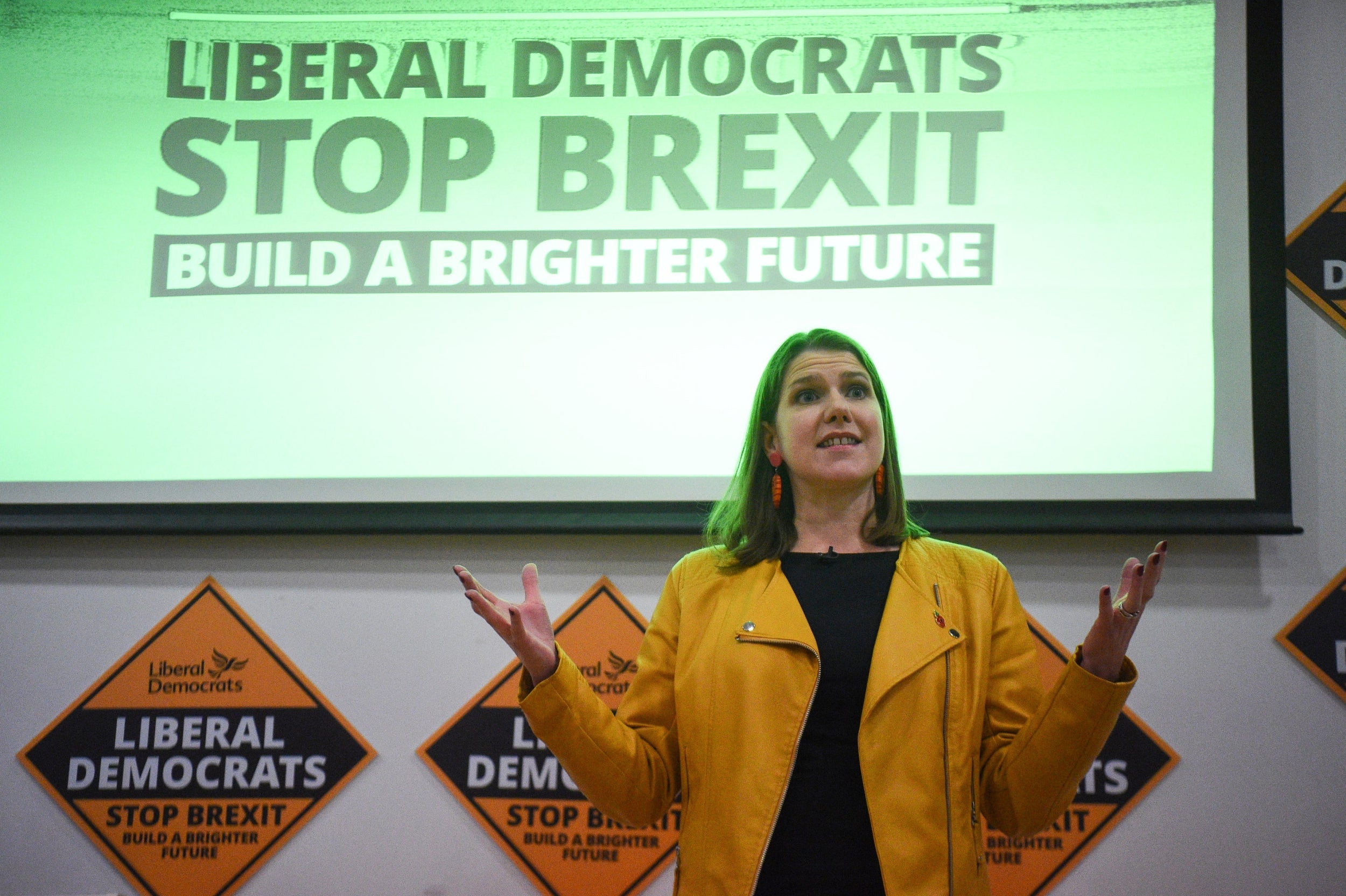The Liberal Democrats, Greens and Plaid Cymru announced on Thursday that they won’t be standing candidates against each other in some seats at the general election. The pact is styled as a “remain alliance” with the stated aim of maximising the number of anti-Brexit MPs in the next parliament.
Under the agreement the Greens will get a free run in 10 seats, the Lib Dems in 43, and Plaid Cymru in 7.
But there are good reasons to be sceptical as to whether this is really a “remain alliance”. The biggest one is that many of the seats targeted are held by strongly remain-supporting Labour MPs.
Lib Dem President Sal Brinton said on Thursday morning that Labour wasn’t included in the pact because “Corbyn stands for Brexit and this is about Remain”. Labour supports a Final Say referendum, though the opposition party is adamant that it is not a “remain party” and merely want to offer the public a choice.
Whether you agree with this analysis or not, some of the choices of seats are certainly eyebrow-raising for a “remain alliance”.
For example, one of the targeted seats is Exeter, a constituency held by Labour’s Ben Bradshaw – one of the most prominent supporters of the People’s Vote campaign. Likewise with Bristol West, a seat held by Thangam Debbonaire, a remainer who even rebelled against the Labour whip so could vote against triggering Article 50.
Stroud is another interesting choice: the seat is highly marginal between Labour and the Conservatives, and the Labour MPs David Drew is on record as supporting a Final Say referendum. Last time he managed to oust the Conservatives incumbent by just 600 votes. The Greens, who will get a clear run at the seat under the agreement, won just 2.2 per cent in 2017.
It’s perfectly legitimate for parties to tactically stand down against each other to increase their chances of winning. To describe this particular arrangement as being in aid of Remain however seems like a stretch given some of the seats involved. The selection seems more driven by which seats the parties want to win, rather than an assessment of whether the sitting MP supports a Final Say or not. There’s not necessarily anything wrong with that – parties are out to win elections. But it’s not what most people think of when they think of a remain alliance.
It’s also interesting to consider whether the pact might have some unintended consequences. Voters are not automatons and do not always go where party leadership want them to go. For example, it’s entirely possible that in seats where a Green candidate stands down, their voters go not to the Lib Dems, but to Labour – or don’t bother to turn out at all.
Top 10 marginal seats to watch at the general election
Show all 10One place a version of this effect might be seen is Vale of Glamorgan, where the Liberal Democrats and Plaid will be standing aside, ostensibly to give the Green candidate a clear run (the Greens won 0.8 percent of the vote there in 2017).
The seat is in fact a two-way marginal between Labour (43.4 per cent) and the sitting Tory MP Alun Cairns (47.5 per cent). Mr Cairns notably resigned as a minister over a rape trial scandal earlier this week, but is still the Tory candidate in the seat.
The alliance’s intention is for the 6 per cent of the vote won by Plaid and the Lib Dems in 2017 to go to the Greens this time... but could voters have other ideas, given the tightness of the contest? We won’t know until the early hours of 13 December, but don’t rule it out.
The full list of seats in the alliance is below:
ENGLAND
Green Party – 9 seats
Brighton, Pavilion
Isle of Wight
Bristol West
Bury St Edmunds
Stroud
Dulwich and West Norwood
Forest of Dean
Cannock Chase
Exeter
Liberal Democrats – 40 seats
Bath
Bermondsey and Old Southwark
Buckingham
Cheadle
Chelmsford
Chelsea and Fulham
Cheltenham
Chippenham
Esher and Walton
Finchley and Golders Green
Guildford
Harrogate and Knaresborough
Hazel Grove
Hitchin and Harpenden
North Cornwall
North Norfolk
Oxford West and Abingdon
Penistone and Stocksbridge
Portsmouth South
Richmond Park
Romsey and Southampton North
Rushcliffe
South Cambridgeshire
South East Cambridgeshire
South West Surrey
Southport
Taunton Deane
Thornbury and Yate
Totnes
Tunbridge Wells
Twickenham
Wantage
Warrington South
Watford
Wells
Westmorland and Lonsdale
Wimbledon
Winchester
Witney
York Outer
WALES
Green Party – 1 seat
Vale of Glamorgan
Liberal Democrats – 3 seats
Brecon and Radnorshire
Cardiff Central
Montgomeryshire
Plaid Cymru – 7 seats
Arfon
Caerphilly
Carmarthen East and Dinefwr
Dwyfor Meirionnydd
Llanelli
Pontypridd
Ynys Mon
Subscribe to Independent Premium to bookmark this article
Want to bookmark your favourite articles and stories to read or reference later? Start your Independent Premium subscription today.


Join our commenting forum
Join thought-provoking conversations, follow other Independent readers and see their replies